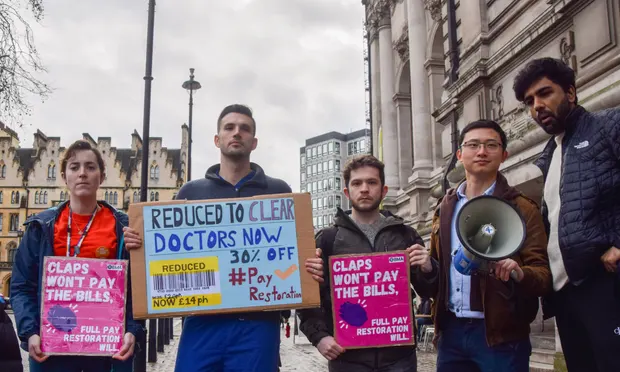Tens of thousands of junior doctors in England will strike for 72 hours next month in a dramatic escalation of the row between NHS staff and the government.
The British Medical Association (BMA) confirmed industrial action would take place – only the second such action in the 74-year history of the NHS – after junior doctors voted overwhelmingly to strike.
The Guardian understands the 72-hour action will begin in March, during which they will not provide emergency care.
It comes amid an increasingly acrimonious row between health unions and ministers over pay, morale and staffing levels.
“Doctors have never experienced so much stress, so much moral injury from not being able to undertake the care that they’re so desperate to give,” Prof Philip Banfield, the chair of the BMA, said at the weekend.
“This government, with its silence and disregard for our highly skilled and expert workforce, is consciously and deliberately overseeing the demise of the NHS at a point when it is needed most.”
He added that by refusing to enter “meaningful negotiations” with unions, Barclay and Rishi Sunak were “guaranteeing escalation” and that staying silent was “reckless”.
The mass action involving about 45,000 junior doctors will be the longest continuous strike undertaken by any healthcare workers in England.
Junior doctors who are members of the Hospital Consultants and Specialists Association (HCSA) have already said they will strike for the first time in the union’s history. That action takes place on 15 March.
Tens of thousands of nurses in cancer wards, A&E departments and intensive care units in England will also stop work for 48 hours from 1 March. Ambulance staff in England and Wales will stage industrial action on 6 March and 20 March.
The Department of Health and Social Care has repeatedly insisted that supporting and retaining NHS staff is one of its main priorities.



